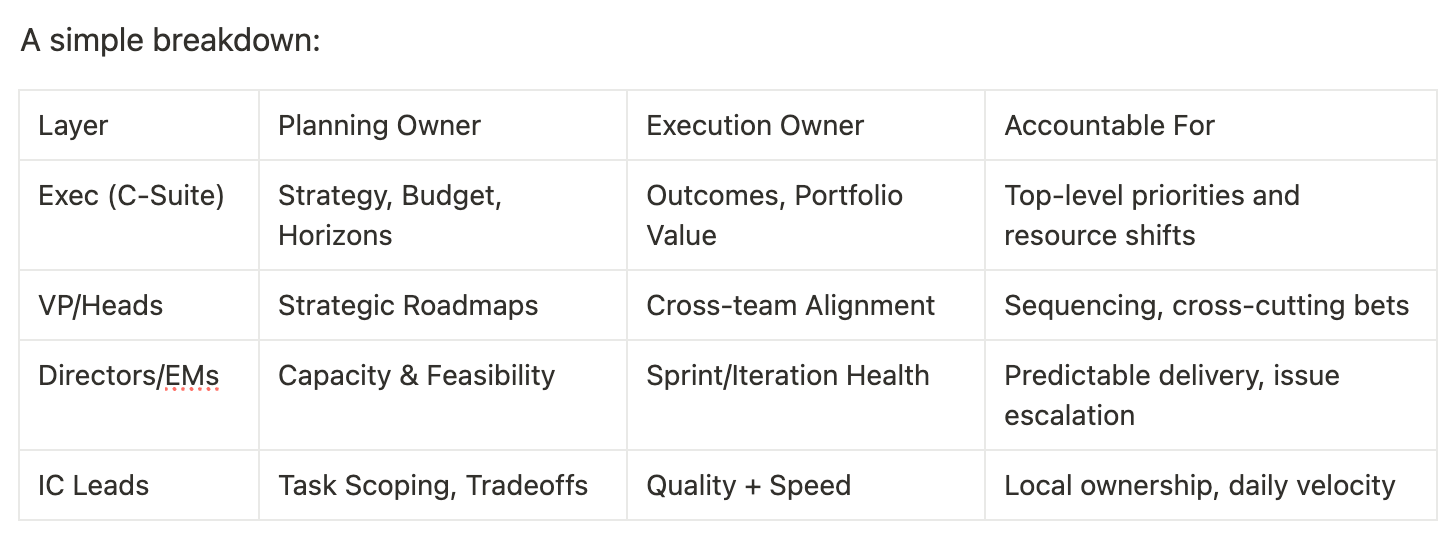Bridging the Monster Gap Between Planning and Execution
What every tech VP needs to fix before the next quarterly review
Why This Still Hurts
Planning and execution aren’t separate functions; they’re a continuum. But in most organizations, they operate like estranged siblings. We build pragmatic plans that get lost in translation and then we execute frantically, often on the wrong things. The gap isn’t just a focus problem. It’s a failure in leadership.
This expanded guide goes beyond theories and PPTs. It’s built for VP-level leaders who are accountable for both setting the plan and delivering the outcomes. It focuses on five critical gaps and how to fix them.
Who Owns the Bridge?
(Role Clarity & Accountability)
Ownership is the foundation. If everyone is responsible for everything, no one is actually responsible for anything. It is truly painful and nothing gets done. You need individuals accountable to bring focus and deliver results.
If accountability isn’t explicit in your org, write it down. Reiterate it monthly. Otherwise, chaos.
What Does Great Execution Look Like?
(Signals & Systems)
Planning isn’t just about setting direction. I genuinely believe most people want to win. They want to see value and positive returns. BUT, in order to do so, your organization requires systems that enable people to get shit done. Planning MUST include designing those systems.
Key Signals of Great Execution:
Mission, vision and priorities are known at every level (company, team, individual)
Work-in-progress (WIP) is constrained and visible
Unplanned work is surfaced and triaged
Delivery is boringly predictable
Retrospectives lead to real behaviour change
Minimum Operating System (MOS):
Quarterly planning tied to strategy
Monthly exec review of outcomes vs. promises
Biweekly planning is tied to capacity.
Weekly checkpoint on risk, blockers, and scope creep
Sprint review that checks output against the original intent (not just demo theater)
Discipline beats any level of motivation or brilliance here.



